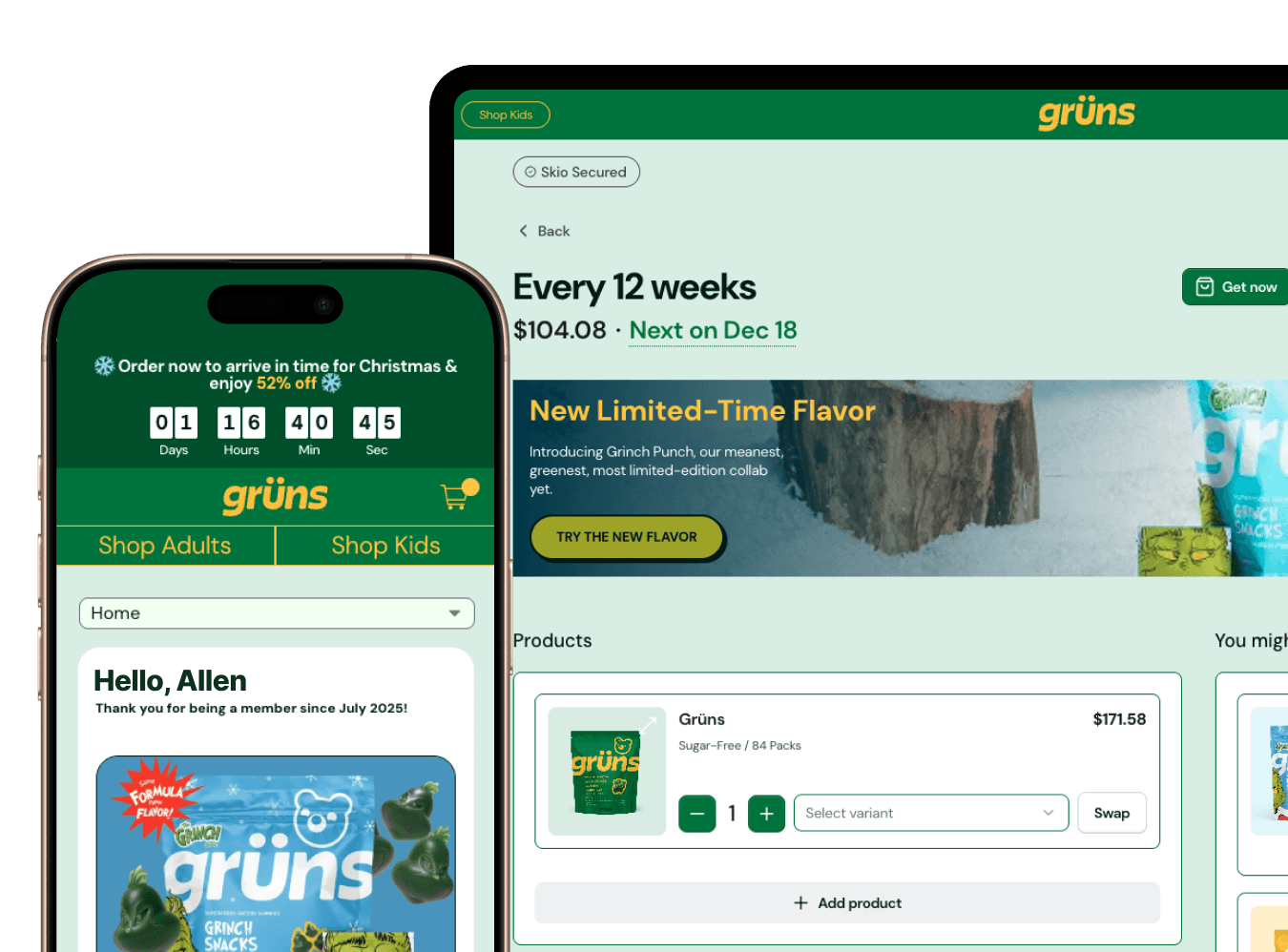Jonathan Poma is the CEO of Loop, an exchange-first returns platform for Shopify brands. We sat down with Jonathan to learn more about Loop’s origin, his shifting role, and how to hire – and retain – top talent in the ecommerce space.
Jonathan Poma is the founder and CEO of Loop, an exchange-first returns platform for Shopify brands. We sat down with Jonathan to learn more about Loop's origin, his shifting role, and how to hire – and retain – top talent in the ecommerce space.
Returns are a headache to process, both for brands and for customers. Until recently, there weren't many tools that alleviated this problem – making matters even worse for scaling ecommerce brands. But thanks to Loop, returns are finally headache-free.
Loop has redefined the post-purchase experience by enabling Shopify brands to transform returns into exchanges while automating their returns process. Over the last five years, they've supported brands like Allbirds, Figs, and Brooklinen retain more than $400 million in revenue.
We met with Jonathan Poma, Loop's founder and CEO, to discuss what it's like running a software business, where we covered:
Finding product-market fit and early success
Remaining flexible while fundraising and scaling
Hiring and retaining top talent in the ecommerce space
Finding Product-Market Fit and Early Success
As a previous consultant, Poma worked closely with Chubbies, where he noticed firsthand the challenges of manual returns processing. Using this as a catalyst, Poma started Loop with a colleague, Kyle Hency, and they both quickly realized Loop had exceptional product-market fit.
Chubbies became their first client – and processing returns worked so well for them that Loop onboarded Allbirds as their next customer. From there, things took off.
Jonathan recalls how quickly Loop found product-market success, and how fast they hit a ceiling.
"Our business was propped up by product-market fit. But, five years ago, we were still convincing people that returns actually meant something to their bottom line. We didn't realize the scale of the opportunity until 2019."
Although the business was generating revenue, growing 150-200% year-over-year, they had no lead generation or marketing functions, making their business hard to find.
"Early on, the only way people found us was by digging into the source code of the Allbirds returns website and finding loopreturns.com, then emailing us to get in touch. It was too challenging."
It was time to mature the business, so Jonathan and his team:
Established a product vision and roadmap with clear goals
Brought on operators, allowing the founders to focus on the business
Hired sellers and marketers to develop go-to-market strategies
Remaining Flexible While Scaling and Fundraising
Evolving from a scrappy Columbus-based startup to a venture-backed, growth-stage company required a certain level of flexibility and foresight, both from Jonathan and his growing team.
"In 2020, the scale of ecommerce grew exponentially. That's when more merchants realized that returns and exchanges could be profitable – and that they needed our help to capture the opportunity."
The business began to grow, and by 2021, the competitive landscape shifted, positioning Loop as the market leader in the returns space.
Loop went on to raise $65M in Series B funding during the summer of 2021, and Jonathan admitted that he and his team felt the pressure.
"At the seed stage, investors believe in the idea. At Series A, they're investing in product-market fit. But, at Series B, they're betting on you to scale beyond that."
"There are some huge expectations that come after fundraising. But the team and I were energized to scale Loop, and we seized the opportunity."
Today, Loop supports over 1,100 of Shopify's best brands, and Jonathan understands his shifting role comes with the territory.
Here are a few lessons Jonathan learned during this growth period:
You build trust by spending quality time with your team-members
You get the best out of your team by knowing what motivates them
You unleash your team's success by accepting that you're no longer the expert
Get past your ego; it's what is standing in the way of you and success
Hiring and Retaining Top Talent in the Ecommerce Space
Part of successfully scaling a business includes hiring talented people – and Loop takes this responsibility seriously.
"Every week I reflect on whether to hire an external candidate or give an up-and-coming team member a chance to prove themselves. There has to be a healthy mix of both internal promotions and external hires to create a balanced company culture."
As a result, Loop leaders keep these questions in mind while developing new roles:
How does this align with our vision?
Are you building a job for yourself, a business, or an exit opportunity?
What level of capital do you have available to hire?
Will this person be an operator or a visionary?
Can we promote someone internally?
It's one thing to promote or hire top talent, it's another thing to retain them.
"High performers play a vital role in the success of any organization. But keeping them happy and engaged is entirely different."
Jonathan believes four factors influence top talent to not only join, but stay, at Loop:
Constantly Learning
Team members need to constantly learn, or they'll go elsewhere.
Vision Alignment
Team members need to believe in the company's vision.
Competitive Compensation
Team members need to be compensated competitively.
Company Culture
Team members need to see that company culture is thriving.
"I think the most important factor in employee happiness and business success is company culture. I like to say that culture is the culmination of accepted, expected, and tolerated behaviors at a company, and that a good business is only as scalable as its culture."
Today, Loop employs over 130 team members across North America – and counting. Interested in working at Loop? Check out their careers page.

































